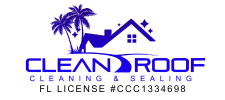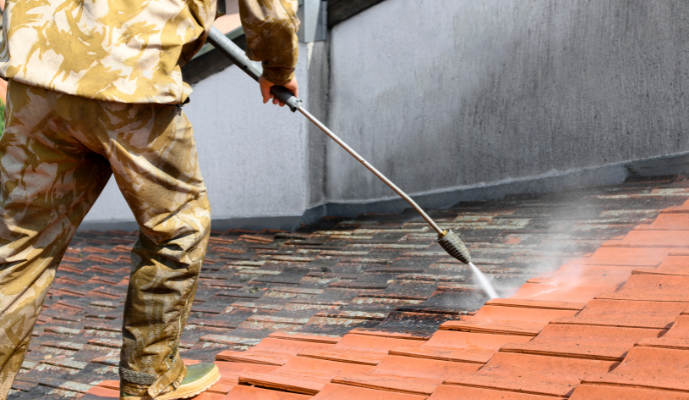Pressure washing can be a highly effective way to clean various surfaces, from concrete driveways to roof shingles. Yet, the question often arises: can pressure washing damage concrete and roofs? Many homeowners consider using a pressure washer to tackle tough stains and grime, but too much pressure or improper techniques can indeed lead to unwanted damage. Understanding the delicate balance between effective cleaning and surface protection is key to achieving a spotless look without risking the structural integrity of your home. Let’s dive into how you can use pressure washing responsibly and what you should know to protect your property.
Understanding the Power of Pressure Washing
Pressure washing involves the use of high-pressure water jets to remove dirt, algae, mold, and other contaminants from surfaces. It’s especially popular for cleaning concrete surfaces due to its effectiveness at lifting oil stains and grime that would otherwise be difficult to remove. However, not all concrete surfaces or roofs respond well to extreme pressure, as some materials are more sensitive than others. A standard power washer can deliver water at pressures between 1,500 and 4,000 PSI, which is significantly more powerful than a garden hose.
While this power makes it effective for cleaning, too much pressure can also wear down or even chip away at concrete and other delicate materials. Improper power washing can cause cracks, erosion, or premature aging of concrete, asphalt, and roof tiles.
Can Pressure Washing Damage Concrete?
The short answer is yes. Pressure washing can damage concrete if not done correctly. Concrete is durable, but certain techniques can lead to harm. Here’s why:
1. Too Much Pressure: Using so much pressure directly on a concrete surface can wear down its top layer, causing it to become rough or uneven. This erosion not only makes concrete less visually appealing but also shortens its lifespan.
2. Incorrect Nozzle Size: Different pressure washers come with nozzle tips designed to handle various cleaning tasks. Using the wrong nozzle can concentrate high-pressure water onto a small area, leading to washing damage on concrete and increasing the risk of cracks.
3. Failure to Move the Pressure Washer: Holding the pressure washer in one spot for too long can etch or damage the surface. Even a short burst of extreme pressure can create a noticeable mark on your concrete driveway.
4. Sealer Removal: Many concrete driveways and walkways are sealed to protect against moisture and stains. Pressure washing at high pressures can strip this sealant, leaving the concrete vulnerable to water absorption and cracking over time.
While pressure washing concrete is generally safe when done correctly, improper techniques can lead to lasting pressure washing damage on concrete. For best results, consider using a professional service to safely pressure wash your surfaces and avoid common pitfalls.
How Does Pressure Washing Impact Roofs?
Roofs, like concrete, can suffer from improper pressure washing techniques. Roof tiles are typically made from materials like asphalt, clay, or shingles, which can be damaged by high-pressure water. Here’s how improper washing affects roofs:
1. Shingle Damage: Asphalt shingles, in particular, are prone to damage from pressure washers. The high pressure can strip off protective granules, which exposes the shingles to UV rays and accelerates wear.
2. Water Intrusion: If too much water pressure is applied, water may force its way under shingles, leading to potential leaks and mold growth in your home’s attic.
3. Algae and Moss Removal: Pressure washing is often used to eliminate algae and moss from roofs. However, without the right technique, the process can damage the integrity of your roofing material. The use of softer washing methods, sometimes called “soft washing,” is generally recommended for roof cleaning.
4. Material-Specific Damage: Certain roof materials, like slate or clay, can crack under extreme pressure. Professional pressure washing services will know which pressure levels are safe for each material type, reducing the risk of costly roof repairs.
Tips for Pressure Washing Safely on Concrete and Roofs
If you’re determined to handle pressure washing on your own, here are some safety tips to keep in mind. Following these tips can help you avoid pressure washing damage while still getting a fresh, clean look:
Choosing the Right Pressure Level
For most concrete surfaces, a pressure level of 2,500 to 3,000 PSI is sufficient. For roofs, stick to much lower levels or opt for soft washing. If you’re unsure about what’s appropriate, reach out to a professional pressure washing service to prevent damage on concrete and other sensitive surfaces.
Use the Correct Nozzle
Selecting the right nozzle is crucial for even and safe cleaning. Fan nozzles disperse water over a wider area, lowering the chance of concentrated power washer damage, which is essential for delicate surfaces like roofs.
Maintain Movement
One of the main causes of washing damage on concrete and roofs is keeping the pressure washer focused on one spot for too long. Keep the wand moving to evenly distribute the pressure, reducing the chance of etching or chipping.
Regular Cleaning and Maintenance
Routine cleaning can help you avoid pressure washing with so much pressure, as surfaces that are regularly cleaned are easier to maintain and don’t require extreme methods. A low-power wash every season can keep both your roof and concrete surfaces in optimal condition.
Treating Tough Stains with Caution
Oil stains, mildew, and rust on concrete driveways can often be resolved with chemicals or degreasers rather than resorting to high-pressure water. For these tough stains, spot treatments with detergents can help reduce the need for high-pressure settings.
When to Call Professional Pressure Washing Services
For extensive cleaning or when working with sensitive materials, it’s often wise to hire professional pressure washing services. Experts in the field have the equipment, training, and experience to determine the right amount of pressure and the best techniques for each type of surface.
Professional pressure washing services can safely pressure wash delicate roof shingles, clean concrete without causing erosion, and remove tough stains effectively. When it comes to complex tasks like cleaning a roof or removing oil stains from a concrete driveway, the expertise of a professional is invaluable.
Roof Cleaning Services Provided by Florida Clean Roof
For those seeking reliable roof cleaning services, Florida Clean Roof offers professional solutions to keep your surfaces spotless without the risk of damage. With tailored techniques for various materials, Florida Clean Roof ensures safe, efficient cleaning for homes and businesses. Whether dealing with algae on your roof or grime on your driveway, their team provides high-quality, damage-free cleaning services you can trust.

